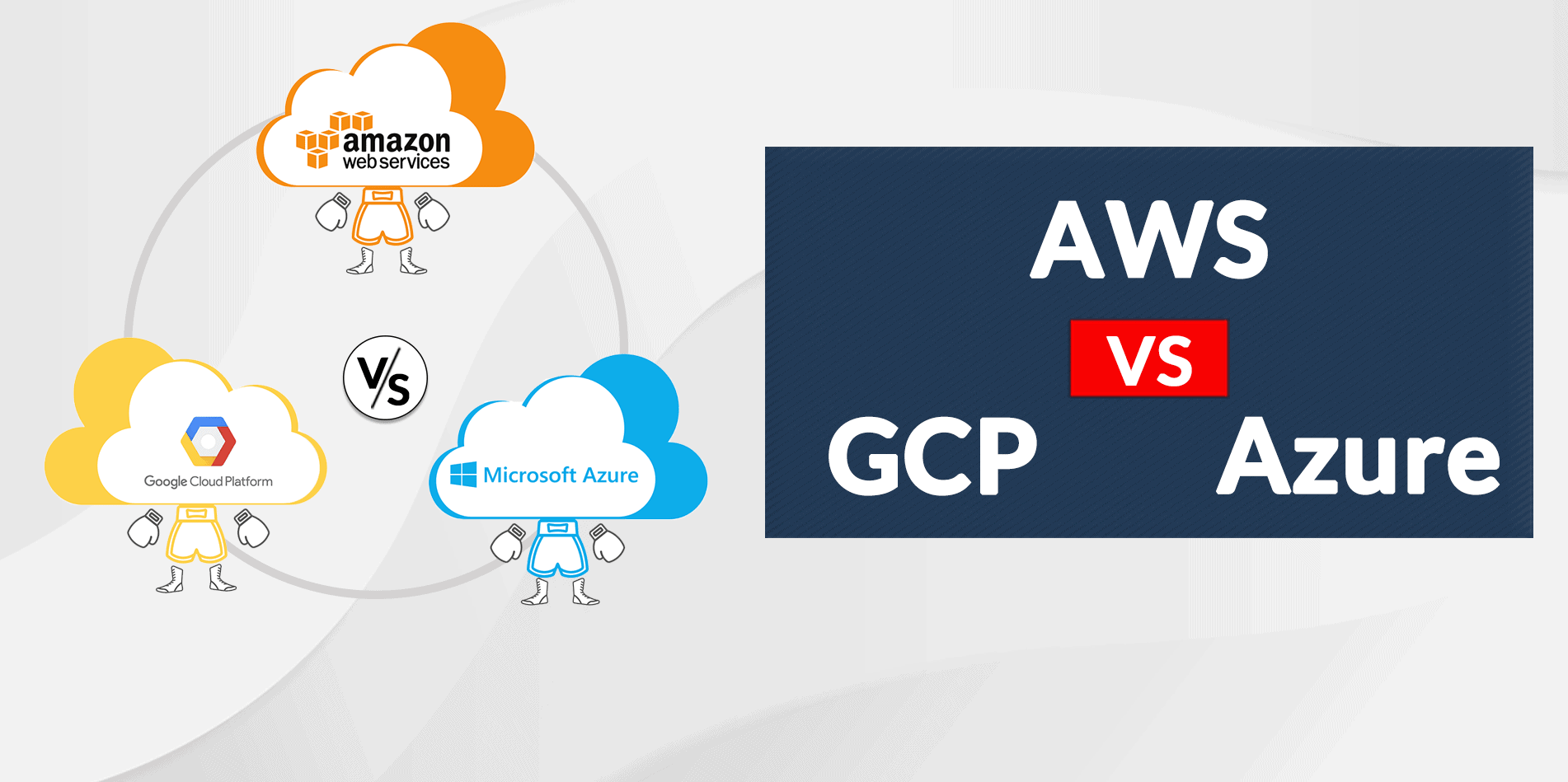The world of cloud computing offers a plethora of options, but three major players stand out: Google Cloud Platform (GCP), Amazon Web Services (AWS), and Microsoft Azure. Each of these cloud providers offers a vast array of services and features to meet the diverse needs of businesses and developers. In this article, we will compare Google Cloud Platform vs. AWS vs. Azure helping you make an informed decision when choosing the right cloud solution for your specific requirements.
Google Cloud Platform (GCP)
Strengths:
- Data Analytics: GCP is known for its powerful data analytics and machine learning capabilities. It provides services like BigQuery and TensorFlow for advanced data processing and AI applications.
- Global Network: Google’s infrastructure is renowned for its global reach and low-latency network, making it ideal for businesses with a worldwide presence.
- Containerization: Kubernetes, an open-source container orchestration platform, was developed by Google, and GCP offers robust support for containerization.
Weaknesses:
- Smaller Market Share: GCP holds a smaller market share compared to AWS and Azure, which can lead to fewer third-party integrations and community resources.
Amazon Web Services (AWS)
Strengths:
- Market Leader: AWS is the undisputed market leader, offering a vast ecosystem of services and a strong global presence.
- Scalability: AWS provides unmatched scalability, making it suitable for startups to enterprise-level organizations.
- Diverse Service Portfolio: AWS boasts a wide range of services, including computing, storage, databases, machine learning, and more.
Weaknesses:
- Complex Pricing: AWS pricing can be complex, and users may find it challenging to estimate costs accurately.
- Learning Curve: Due to the extensive service offerings, there may be a steep learning curve for users new to AWS.
Microsoft Azure
Strengths:
- Integration with Microsoft Products: Azure seamlessly integrates with Microsoft products such as Windows Server, Active Directory, and SQL Server.
- Hybrid Cloud Solutions: Azure is well-suited for organizations with hybrid cloud needs, allowing them to integrate on-premises and cloud resources.
- Enterprise Focus: Azure is often preferred by enterprises due to its strong compliance and security features.
Weaknesses:
- Learning Curve: Like AWS, Azure’s extensive service catalog can be overwhelming for newcomers.
- Smaller Data Center Network: While Azure has been expanding, its data center network may not be as extensive as AWS in certain regions.
Comparing GCP, AWS, and Azure
Compute Services
- GCP: Offers Compute Engine for VMs, Kubernetes Engine for container orchestration, and App Engine for serverless applications.
- AWS: Provides Amazon EC2 for VMs, Amazon ECS for containers, and AWS Lambda for serverless computing.
- Azure: Offers Azure Virtual Machines, Azure Kubernetes Service, and Azure Functions for serverless computing.
Storage Services
- GCP: Features Cloud Storage, Cloud SQL, and Bigtable for various storage needs.
- AWS: Includes Amazon S3, Amazon RDS, and Amazon DynamoDB for storage solutions.
- Azure: Offers Azure Blob Storage, Azure SQL Database, and Azure Cosmos DB.
Data Analytics and Machine Learning
- GCP: Known for BigQuery, TensorFlow, and AI Platform for machine learning.
- AWS: Provides Amazon Redshift, Amazon SageMaker, and AWS Glue for data analytics and ML.
- Azure: Features Azure Synapse Analytics, Azure Machine Learning, and Azure Data Factory.
Networking
- GCP: Offers Virtual Private Cloud (VPC) and Cloud Load Balancing for networking needs.
- AWS: Provides Amazon VPC and Amazon Elastic Load Balancing.
- Azure: Includes Azure Virtual Network and Azure Load Balancer.
External Links for Further Reading
FAQs Related to Cloud Comparison
Q: Which cloud provider is the most cost-effective for small businesses?
A: Cost-effectiveness depends on your specific needs. All three providers offer cost calculators to help estimate expenses.
Q: Can I migrate my existing on-premises infrastructure to these clouds?
A: Yes, all three cloud providers offer tools and services for migrating on-premises workloads to the cloud.
Q: How do these providers handle security and compliance?
A: All three have robust security and compliance offerings, but you should evaluate which aligns best with your industry’s specific requirements.
Q: Which cloud provider has the best support and documentation?
A: AWS is often praised for its extensive documentation and support options, while Azure offers seamless integration for Microsoft-centric organizations.
Q: Are there free tiers or trials available for testing these cloud platforms?
A: Yes, all three providers offer free tiers and trial credits for new users to explore their services.
Choosing the right cloud provider among GCP, AWS, and Azure depends on your organization’s unique needs, goals, and existing infrastructure. Each platform has its strengths and weaknesses, making it essential to assess your requirements carefully. By considering factors such as scalability, cost, integration, and available services, you can make an informed decision that aligns with your cloud computing goals.

